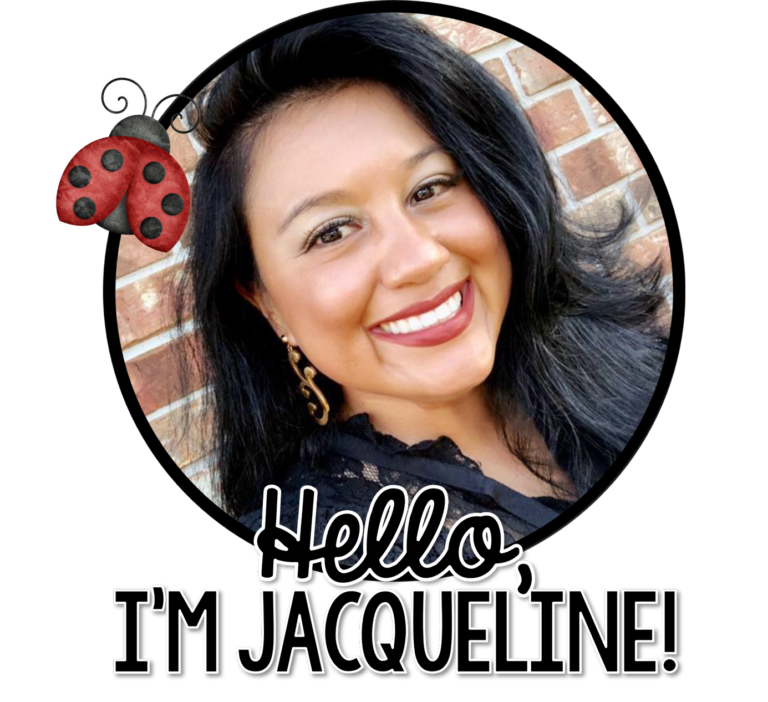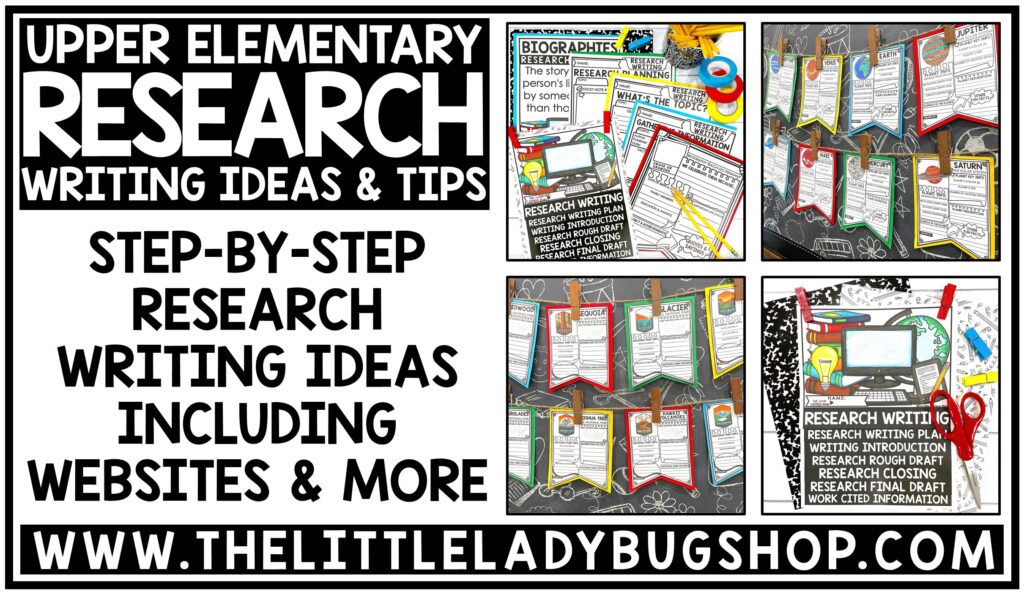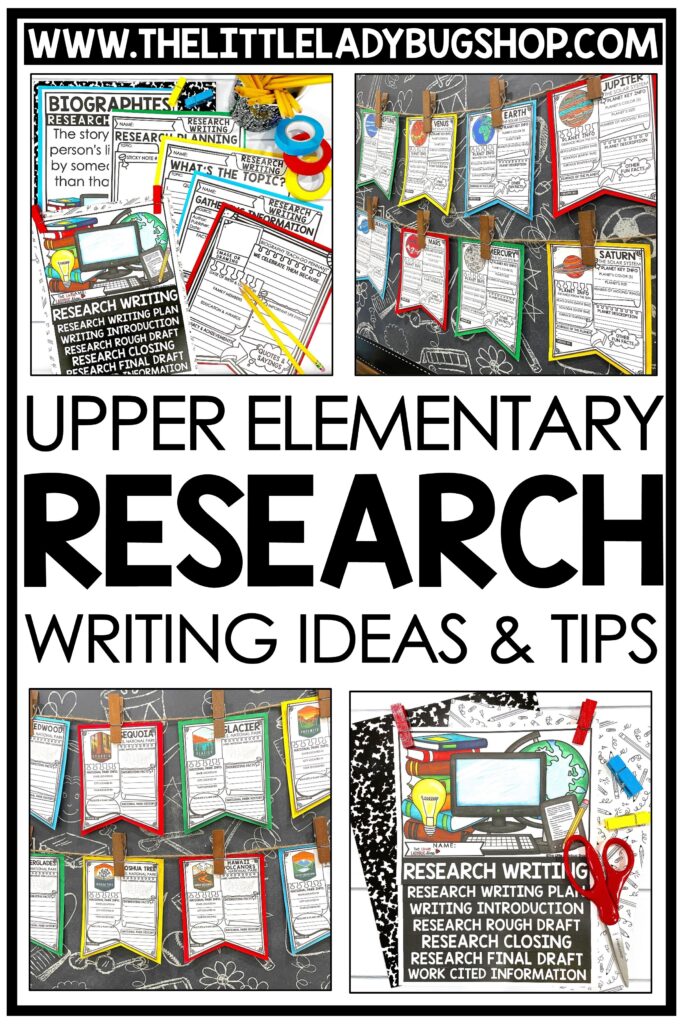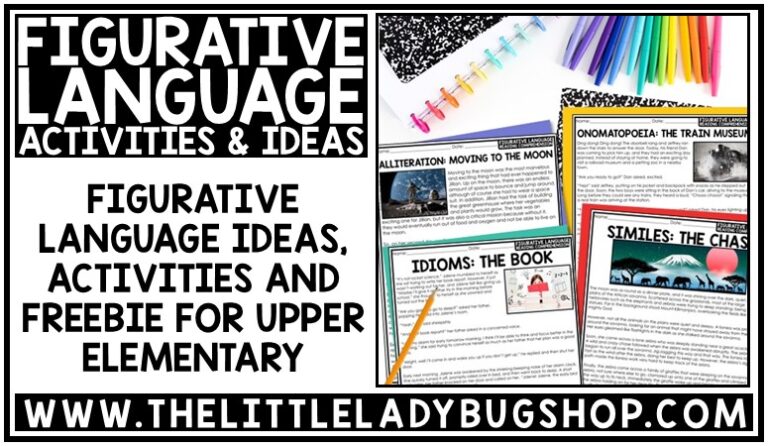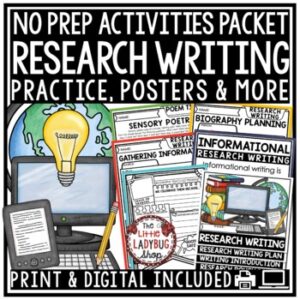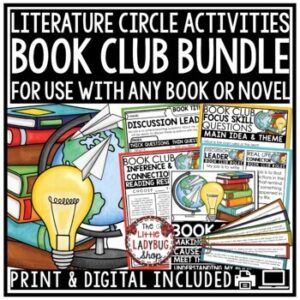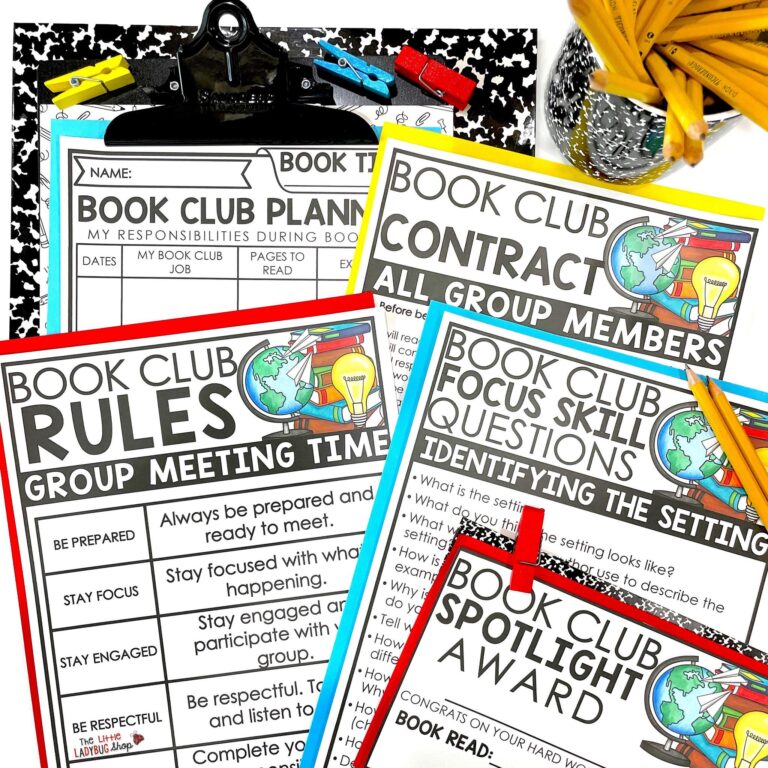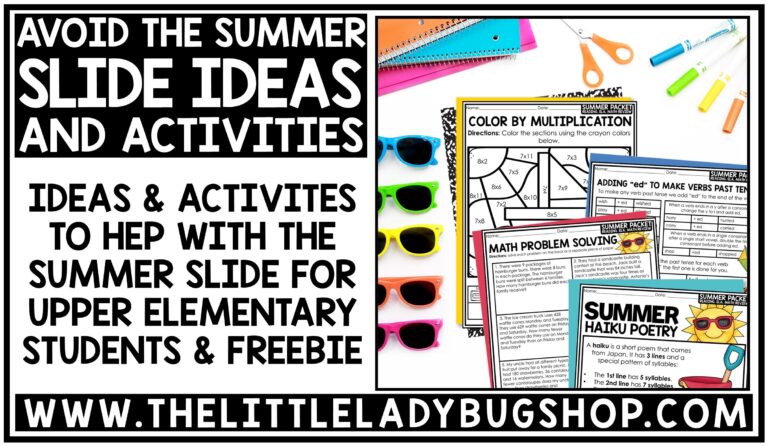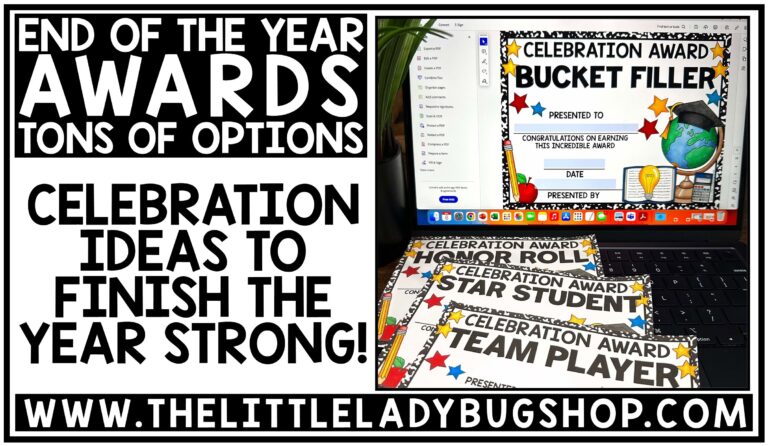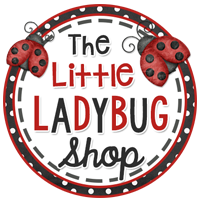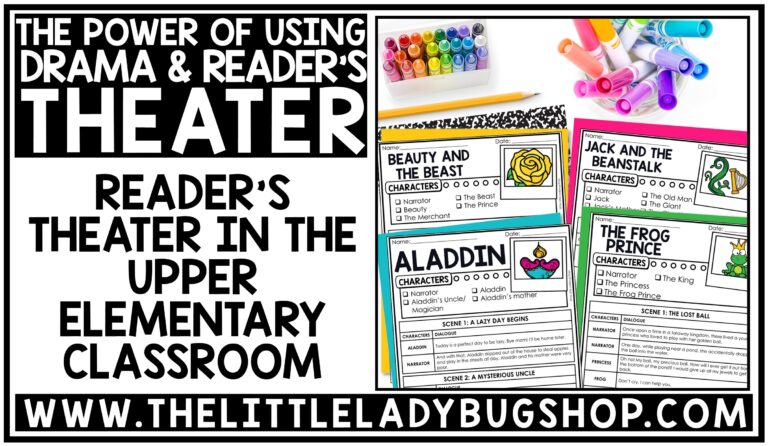
Research Paper Writing for Upper Elementary Students
Share it:
Teaching Research Paper Writing for Upper Elementary Students
Guiding Upper Elementary Students Through Research Paper Writing
Teaching upper elementary students how to write a research paper may appear challenging initially. However, with the right approach and resources, it can be a rewarding experience that helps students excel in their later grades. To make the process more manageable, you can break it down into smaller steps and provide tips for teaching essential skills. Additionally, it’s crucial to recommend safe websites for Research Research to ensure a secure learning experience for the students.
Introduce the Concept of Research
Start by explaining what Research is and why it’s essential. Use examples relevant to their lives, such as deciding on the best type of pet based on various factors or choosing a book to read based on interests. This foundational understanding will help students grasp the purpose and value of Research.
Choose a Research Topic
Encourage students to select topics that interest them within the scope of your curriculum. This increases engagement and motivation. Help them narrow, broad topics to make the research process more focused and manageable.
I have put together some helpful resources for you to use in your classroom today and some information to help you understand the importance of Research. As a teacher, I was always scared of tackling Research. Teaching students seems like a lot, but it is worth it after they understand it. I compiled this research packet and other resources to help students understand the research process.
- Research Writing Unit includes anchor charts with definitions [perfect for writing notebooks], picking a topic, researching, gathering information from cited resources, planning, rough drafting, and publishing. This is perfect for any research writing.
- Research Teach-Go Pennants™– many teachers love using my research pennants because they allow students to gather information on a particular topic and help them publish their writing. Some of the most popular topics include Black History Month, Influential Leaders, Holidays Around the World, Insects, Inventors, Animals, Planets, Presidents, and so much more! These are fun and educational, but teachers love displaying them on bulletin boards.
- Digital Research Writing– Many teachers and schools have begun using Google resources, and research writing is a top resource. I created my Digital Teach-Go Pennants™ templates for it to be easy for the teacher to use. You can read more about starting a Digital Classroom here. You can visit here to see some of my digital resources.
- Some books I love recommending for research writing are included in this post: Favorite Biographies and More.
Browse over 25o research Teach-Go Pennants here!
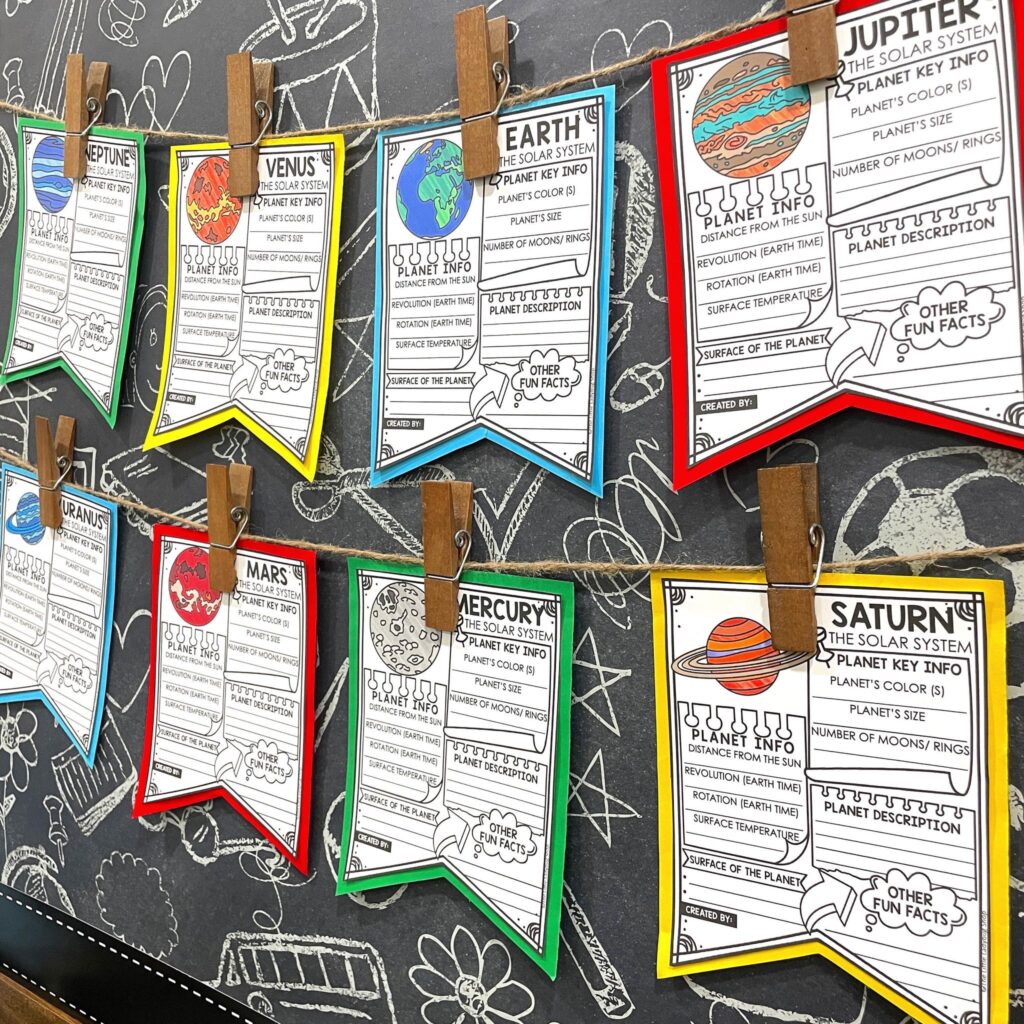
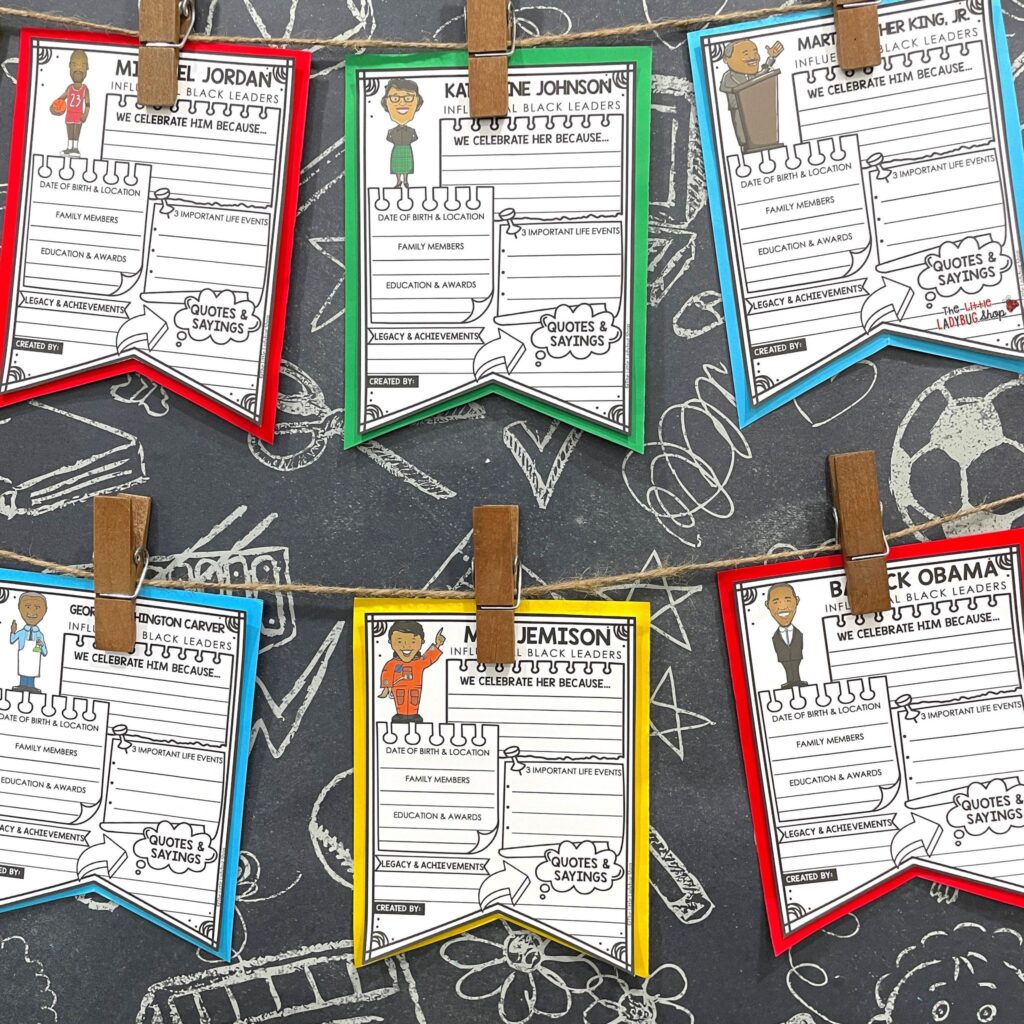
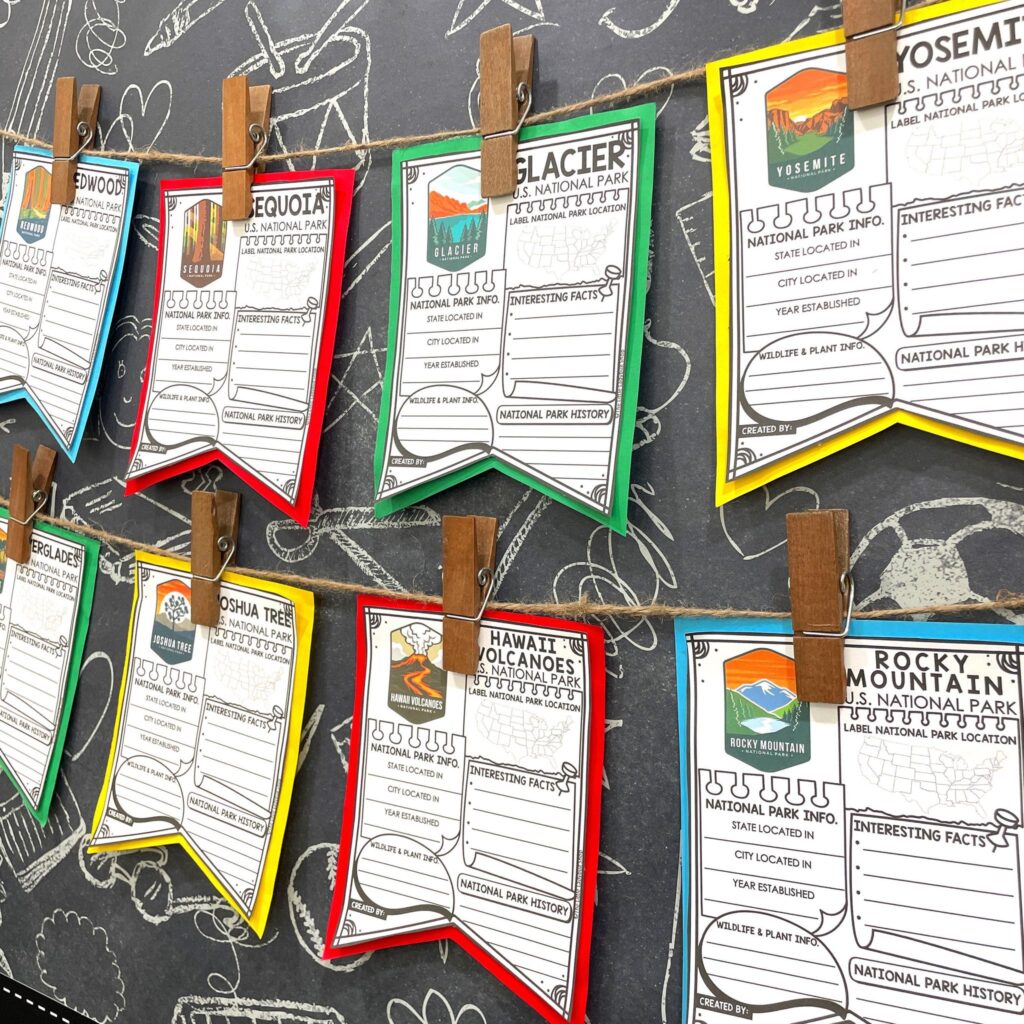
Take a peek at the complete research writing unit here!
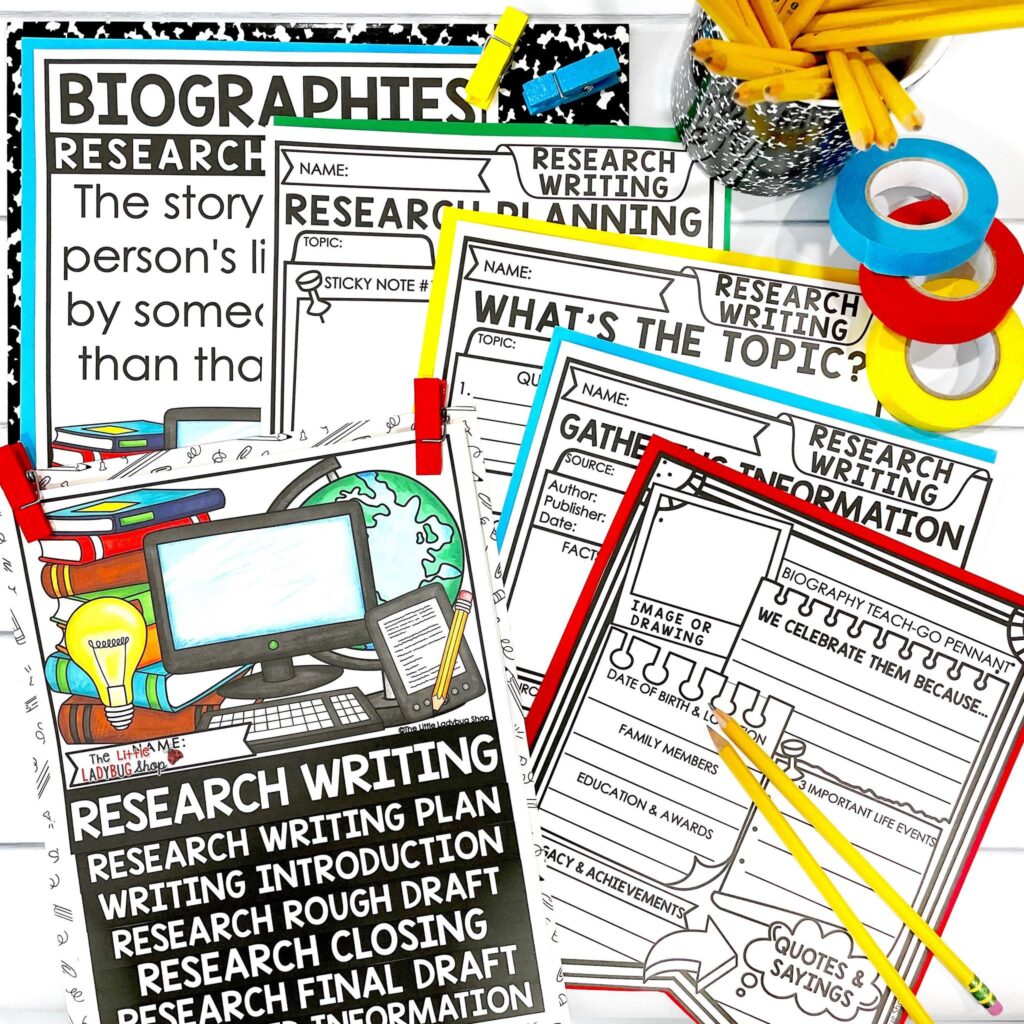

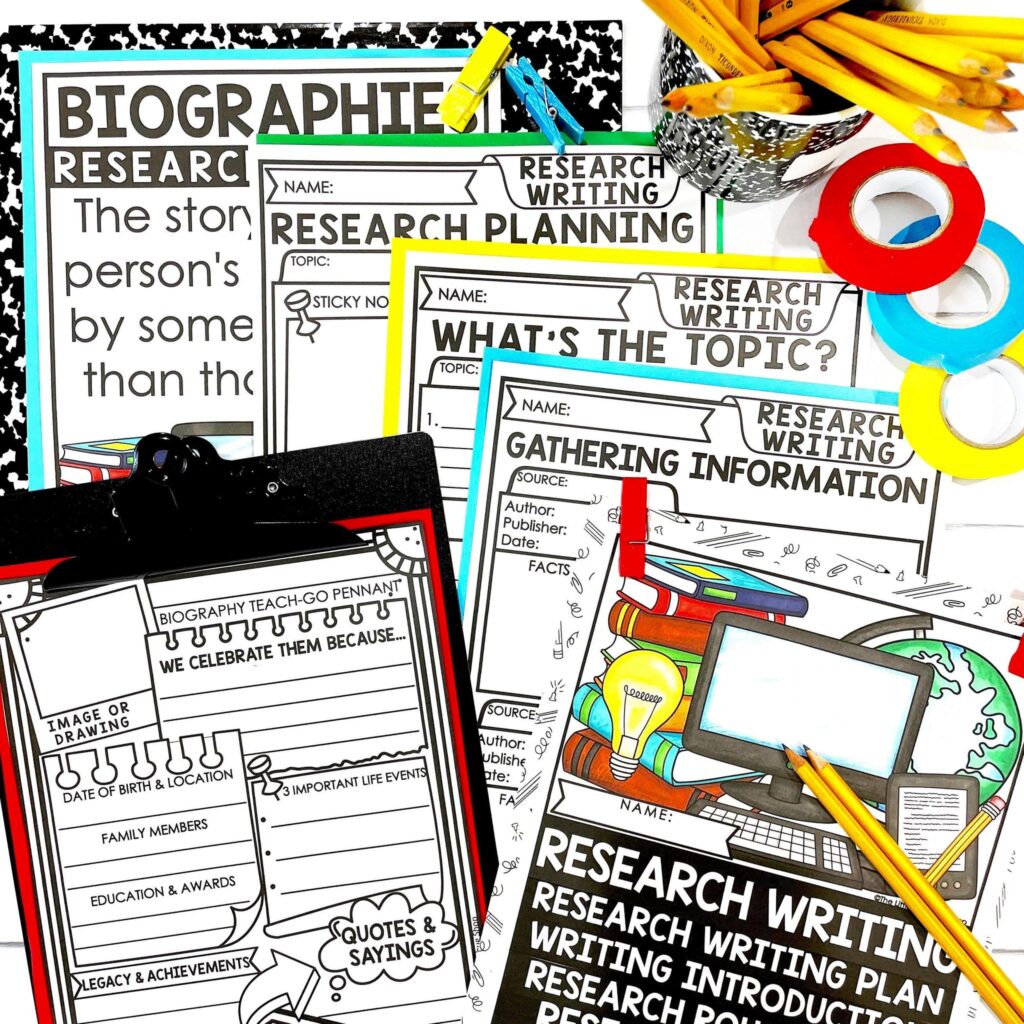
Teaching Research teaches curiosity and questioning skills.
To conduct Research, the first step is to formulate an open-ended question that cannot be answered with a simple yes or no. This can be provided by the teacher or developed by the students themselves. Educating students on questioning skills helps them to extend their reading beyond recall or reproduction.
Teach About Reliable Sources
Before students begin their Research, it’s crucial to discuss the importance of using reliable sources. Introduce them to safe, kid-friendly websites where they can find accurate information. I recommend these 7 websites here:
- National Geographic Kids (https://kids.nationalgeographic.com/) Focus: Geography, animals, science, and cultures. While it might not have specific categories for all the topics, it’s an excellent resource for research on U.S. landmarks and geographical features.
- Kiddle (https://www.kiddle.co/) Kiddle is a search engine designed for kids, providing a safe and age-appropriate browsing experience with filtered web, image, and video results that are reviewed by editors.
- Time for Kids (https://www.timeforkids.com/) Focus: Current events, news, and history. This site often features articles on influential leaders, American symbols, and important landmarks, making it a valuable resource for topical research.
- PBS Learning Media (https://www.pbslearningmedia.org/) Focus: A wide range of subjects including history, science, and arts. PBS LearningMedia provides educational videos and articles that can support research on Black leaders, American symbols, and landmarks.
- Smithsonian’s History Explorer (https://historyexplorer.si.edu/) Focus: American history. This site is an excellent resource for students researching U.S. landmarks, symbols, and influential figures in American history, including Black leaders.
- Scholastic Learn at Home (https://classroommagazines.scholastic.com/support/learnathome.html) Focus: Varied topics across all subjects. Scholastic offers projects and resources that can help students explore a wide range of topics, including influential individuals and historical landmarks.
- Ducksters (https://www.ducksters.com/) Focus: Education site for kids, covering history, geography, and biographies. Ducksters is user-friendly and offers easily digestible information on a variety of topics, including biographies of influential Black leaders and facts about U.S. landmarks and symbols.
Organize the Research Process
Teach students how to organize their Research with simple tools:
- Graphic Organizers: Help students structure their information using Venn diagrams, T-charts, or concept maps.
- Note-Taking Skills: Show students how to take notes effectively, highlighting the importance of writing down key points and where they found them.
Research teaches note-taking skills.
I am not one to tell my students that there is only one way to take notes. However, when students start learning research writing, I’ll present a few different ways to organize information from their sources. Two-column or Cornell notes are a popular way to take notes on topics or questions in an easy-to-read format. Some students find it beneficial to draw pictures or write sketches. Others prefer traditional outline formats such as the Teach-Go Pennants. Teaching note-taking skills will help your students develop essential information retention and organization skills.
Drafting the Research Paper
Introduce an essential structure for the research paper:
- Introduction: Explain the topic and state the research question.
- Body: Present the information found during Research, organized into paragraphs.
- Conclusion: Summarize the findings and answer the research question.
Teach students to write in their own words to avoid plagiarism and encourage them to cite their sources.
Research teaches how to paraphrase and not plagiarize.
Students must understand that information they gain from another source must be cited. It is important to paraphrase. Even when the words are original, credit must be given to the source. With tools like EasyBib, Noodletools, and citation tools built into word processing and Google programs, citing sources has always been challenging!
Revising and Editing
Guide students through the revision process, teaching them to look for areas where they can clarify their ideas, check their work for accuracy, and ensure their writing is cohesive. Editing focuses on grammar, punctuation, and spelling.
Presenting Research
Allow students to present their Research to the class. This boosts confidence and helps them practice public speaking and learn from their peers.
Teaching research paper writing to upper elementary students prepares them for future academic challenges and fosters critical thinking, organization, and communication skills. You can create a supportive environment that encourages curiosity and learning by breaking down the process, utilizing safe and reliable resources, and providing structured guidance.
Pin and Save for Future Reference
This post may contain affiliate links for your convenience. View our full disclosure policy here.
